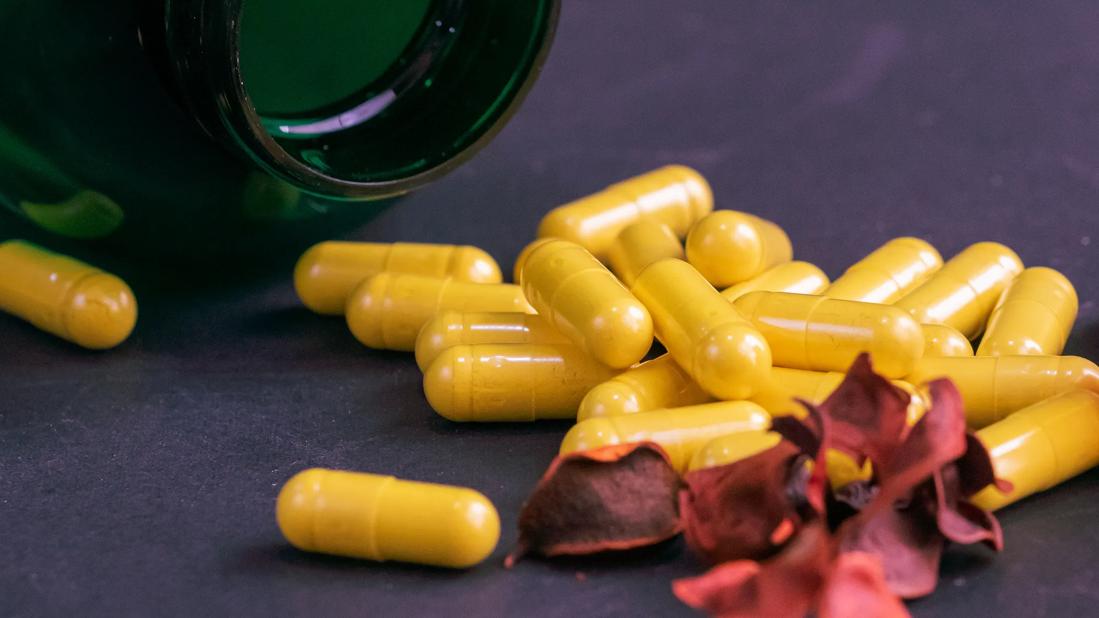The natural supplement may help with weight loss, lower blood sugar and protect your heart

Image content: This image is available to view online.
View image online (https://assets.clevelandclinic.org/transform/9f48bcee-47ff-4b35-b61e-b295ae4ce3cc/berberine-supplements-pills-1410791146)
Yellow berberine pills close up, alongside an upturned green pill bottle
Spend any time online, and you’ll be bombarded with information about the latest trendy supplements. These “all-natural” remedies promise clearer skin, restful sleep, a flat belly, improved memory … the list is endless.
Advertisement
Cleveland Clinic is a non-profit academic medical center. Advertising on our site helps support our mission. We do not endorse non-Cleveland Clinic products or services. Policy
The problem is that these claims often lack substantial data. It’s hard to know which ones are truly beneficial. But berberine, a traditional Chinese medicine, may be a promising supplement.
“People are starting to look at more natural approaches and treatments. But not all ‘natural’ things are without side effects or proven effective,” says functional medicine specialist Layth Tumah, MD. “But berberine, in many ways, acts similarly to medication.”
Berberine is a natural compound called an alkaloid. Alkaloids are naturally occurring organic compounds that contain nitrogen and are extracted from a variety of plants. They’re known for their wide-ranging biological activities and significant pharmacological properties. Other well-known alkaloids include morphine, nicotine and caffeine.
While berberine might not be as famous as caffeine, it’s not a new substance. It’s been a staple in traditional Chinese medicine (TCM) for more than 400 years, mainly used to treat diarrhea and other gastrointestinal infections.
Research shows it may be effective for several chronic diseases, including diabetes, cardiovascular disorders and inflammatory diseases.
But most studies are small, not well-designed and need to be interpreted with caution. And like all supplements, the U.S. Food and Drug Administration (FDA) doesn’t regulate berberine for safety and effectiveness.
Advertisement
So, what does berberine do?
The benefits of berberine show potential for people with conditions such as Type 2 diabetes or metabolic syndrome — a collection of risk factors that make you more likely to develop serious health issues like diabetes, heart disease and stroke.
“Berberine may help regulate blood sugar, high blood pressure and lipid levels and improve the gut mycobiome (the healthy bacteria in the intestines),” notes Dr. Tumah. “Combine berberine with lifestyle changes, like losing weight, and it can positively affect those conditions.”
There’s also evidence that berberine may:
Berberine is good for your gut, but ironically, its most common side effects involve the digestive system and include:
Not everyone experiences berberine side effects, which should become tolerable if you reduce your berberine dosage.
“Start slow and low,” Dr. Tumah emphasizes. “Typical dosing is 500 milligrams (0.5 grams) twice a day before meals. The dose can be up to 1,500 mg per day divided in three doses.”
Dr. Tumah says berberine can be a user-friendly supplement. But there are some things to think about before adding berberine to your daily routine:
Advertisement
Also, while berberine is safe for adults, if you’re pregnant or breastfeeding, you shouldn’t take berberine. And it’s not recommended for young children or babies.
There’s some promise when it comes to using berberine as a supplement, but it’s important to talk to your healthcare provider beforehand. And remember that any supplement shouldn’t be viewed as a cure or a replacement for medications.
“Medications are well-studied, and the dose is established. Healthcare providers know that when we order and recommend a medication, it’s highly likely that you will get the desired dose due to the FDA regulations and strict quality measures,” explains Dr. Tumah.
“The use of supplements could be beneficial as an adjunct therapy and not as a standalone treatment. Additionally, if they’re effective enough to work, they also can cause side effects, especially if they’re not taken under medical supervision.”
Advertisement

Sign up for our Health Essentials emails for expert guidance on nutrition, fitness, sleep, skin care and more.
Learn more about our editorial process.
Advertisement
Certain supplements, like licorice root and St. John’s wort, can raise your blood pressure or negatively interact with medication
Properly prepared, elderberries can be a safe and healthy part of a balanced diet — just steer clear of supplements
Science doesn’t support most claims about this bee byproduct, and supplements have potential risks
The meat-based elimination diet restricts important food groups — like fruits and vegetables — that keep you healthy
Eat your fill of vitamins C, B6 and E, plus zinc and selenium
The vitamins, minerals and other nutrients in the food you eat are essential for a healthy heart, but supplements are another story
Early research shows that this supplement may help, but more studies are needed
Over-the-counter pills, powders, extracts and tinctures can interact with other medications and cause unexpected side effects
Although it could be used as a moisturizer, this new trend is not recommended
Communicating clear limits helps protect your time, energy and emotional well-being
High cholesterol can be genetic, but testing and treatment can lower your heart disease risk